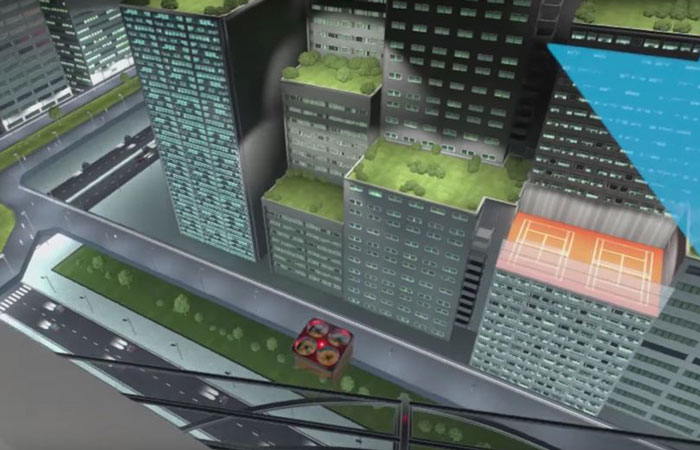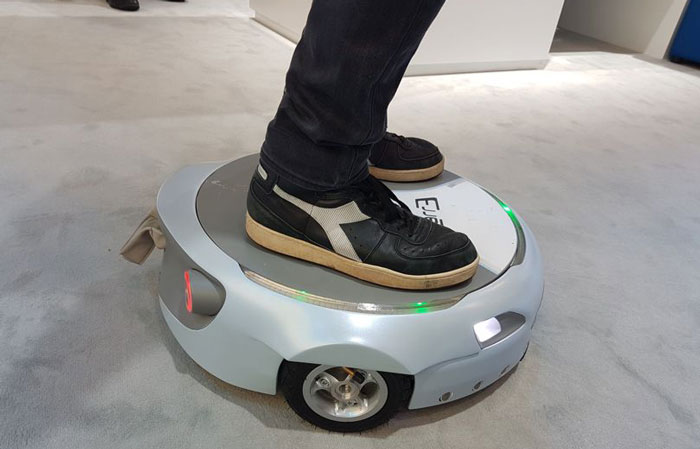Ford could one day turn to drones, autonomous vehicles and even transforming electric tricycles, and also cars, to help solve the last mile delivery headache.
A new concept, dubbed Autolivery, was one of 633 proposals made as part of the company’s internal last-mile mobility challenge which asked employees to design unusual solutions to transport problems.
Conceived of, and developed by, Ford engineers in Shanghai, the concept imagines self-driving, electric delivery trucks driving through cities with drones delivering to crowded skyscrapers. Two other projects, a modified hoverboard that can either be ridden or follow its owner around to carry shopping, and a three-in-one electric tricycle were also demoed.
Steven Armstrong, Ford of Europe’s chief operating officer, said ideas like this were a result of CEO Mark Field’s making it “safe” for employees to innovate. “We have to give them freedom,” he said at Mobile World Congress in Barcelona. “It’s the creativity we’re interested in, not just the physical ideas. Some of the ideas will come to fruition.”
In many respects, Ford is playing catch-up. Starship Technologies is already trialling self-driving delivery robots on the streets of Bern, Dusseldorf, Hamburg, London, Tallinn, Redwood City and Washington, DC. Amazon and DHL have also carried out successful, albeit limited, drone delivery trials. Ford’s efforts remain nebulous by comparison. At Mobile World Congress in 2015 Ford unveiled two electric bike concepts, but is yet to launch anything.
More tangibly, the company has invested $4.5bn into launching its next range of electric vehicles and has set a target of 2021 to launch its first level-four autonomous vehicle. “It’s scary and it’s exciting. We’re part of the biggest shift in our industry, potentially ever,” Armstrong added.
Armstrong suggested that eventually these two parts of Ford’s business would come together. “Initially a lot of autonomous vehicles will be hybrids,” he said, mainly due to the power demands of all the on-board technology. “[But] at some point the two will converge.”
More information: WIRED




Comments are closed, but trackbacks and pingbacks are open.